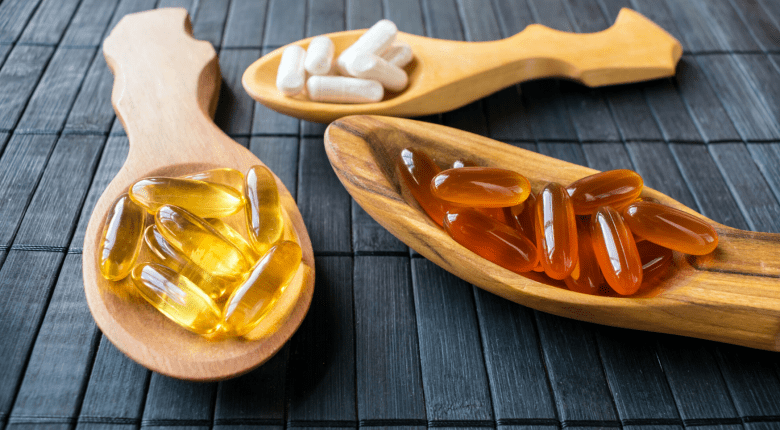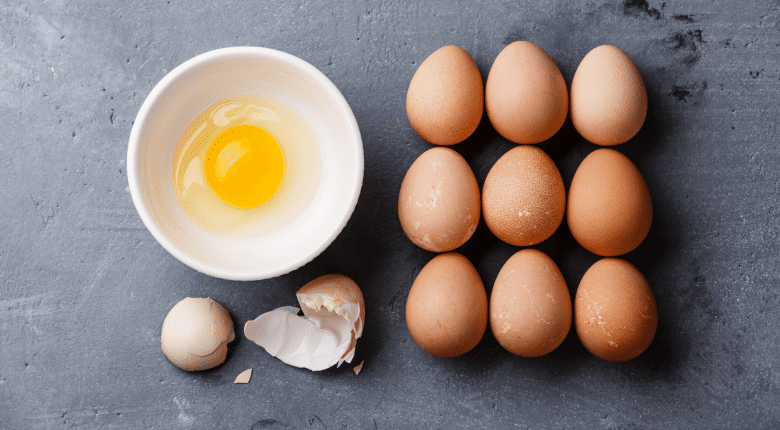We are constantly hearing about the importance of a balanced diet and a healthy lifestyle. Why a balanced diet is important is obvious – it provides us with important nutrients. A healthy lifestyle also includes sufficient sleep and exercise in the fresh air – preferably when it is sunny. All of these factors impact our health positively in many ways. There’s one substance that gets across the meaning of a good lifestyle in a unique way: vitamin D. Find out some interesting facts about the “sunshine vitamin” below. Important tips will also show you how to optimally meet your requirements.
Vitamin D is the only vitamin that we theoretically do not need to absorb from food.
Our body is actually able to produce it itself with the help of UVB radiation from the sun. Skin, liver and kidneys have an important role to play in this production process. Important requirements are that the UVB radiation outside is sufficient, and we spend enough time outside, preferably with as much of the surface of our skin uncovered as possible. However, these requirements are usually not sufficiently met here in Great Britain. This is why vitamin D intake via food supplements also has a role to play.

Vitamin D – daily requirement, sun and nutrition
It is useful to know that, even though we can absorb vitamin D through some foods, it is virtually impossible to cover our entire daily requirement in this way. Instead, the main responsibility here falls to self-synthesis with the help of sunlight. Ideally, this will meet 80-90% of your daily requirements. The remaining 10-20% is then down to nutrition. But how high is the daily requirement? A synthesis and intake of a total of 20 µg per day is the recommended amount.
In practice, this means that we should stay in the sun for twenty minutes a day from April to September – preferably with uncovered arms, legs and without a head covering. In winter, however, the supply of vitamin D is a problem here in the UK. From October to March, the sun’s UVB radiation is no longer sufficient to meet our requirements. Fortunately, our liver is able to store excess vitamin D. However, in most cases stocks are usually only sufficient for two to four months. In winter, therefore, vitamin D-rich foods take on greater importance.
This means a vitamin D deficiency is not uncommon at our latitudes.
It is generally recommended that various groups in the population supplement vitamin D at a level of 20 µg / day, i.e. in the form of food supplements. These groups include the elderly and people who hardly spend any time in the sun, such as nursing home residents. Also, people who cover their bodies for religious or ideological reasons, or who have a dark skin colour by nature, are often affected by a vitamin D deficiency at our latitudes.
In winter, vitamin D supplementation is basically recommended for all population groups in the UK. Overdoses are very rare and only occur in adults from 500 – 1000 µg / day. These values are not achieved naturally or with the above-recommended dosage of the supplements. If you are uncertain, you should of course consult your doctor again.

Sunlight on your plate – vitamin D-rich food
Whether as a supplement in summer or as a small glimmer of light in winter, this crucial vitamin is also found in some foods. However, only a few foods contain significant amounts. Definitely worth a mention are some cold-water fish such as eel, salmon, kipper and herring. However, mushrooms, eggs, margarine, cream and processed cheese are also significant sources of the sunshine vitamin. For example, there are 5 µg in:
- 80 g of kipper or herring
- 600 g of mushrooms
- 1 kg of beef liver
- 20 eggs and
- 600 g of margarine or processed cheese.
However, based on this it is clear that 20 µg / day cannot be covered by diet alone, or only with great difficulty – our everyday meals, therefore, have no great effect on our vitamin D supply.
It is important to note that vitamin D is a fat-soluble vitamin. For you, this means you should always take vitamin D supplements with a meal which also contains fat. There is no fat in an empty stomach, but it is needed to absorb the vitamin.

Vitamin D – what’s its purpose? Consequences of a deficiency, and its functions
It was the consequences of a vitamin D deficiency that brought about research and led to the discovery of the main functions of our sunshine vitamin. In the 19th century, children in industrialised countries who had little exposure to sunlight showed increased bone deformities. This disorder in children, caused by a vitamin D deficiency, is called rickets. Adults also suffer from the consequences of vitamin D deficiency. In this case, the disorder is referred to as osteomalacia. This can result in susceptibility to falls and broken bones. The reason for this is that vitamin D plays an important role in bone metabolism. Our bones are large mineral stores, and this is where our vitamin D also comes into play.
In addition to the above-mentioned function, vitamin D is also very important for our immune system. It activates the so-called non-specific immune defence. Researchers, therefore, assume that this reduces the risk of respiratory infections at all ages. In addition, functions supporting healthy sugar metabolism and cell health are also well known. To ensure these functions, a sufficient supply of vitamin D is therefore crucial. Although a deficiency can manifest itself through non-specific symptoms such as tiredness or muscular weakness, only a blood test can provide clear information.
Health – the big picture
Besides vitamin D, the other vitamins play an equally important role in the functioning of our body. The intake of minerals, trace elements and secondary plant substances should also be sufficient in terms of quantity. The interaction of these so-called micronutrients keeps us healthy, active and increases our resistance to infection. With the exception of vitamin D, our diet is crucial for an optimal supply of nutrients. A balanced and varied diet with lots of fresh food is therefore essential. Your Liebherr refrigerator will help you achieve this: The BioFresh compartment ensures that sensitive vitamins are preserved for longer so that you can get the most out of your food.